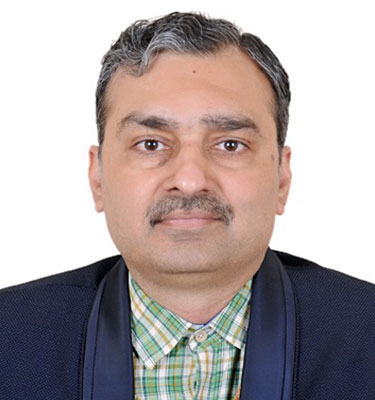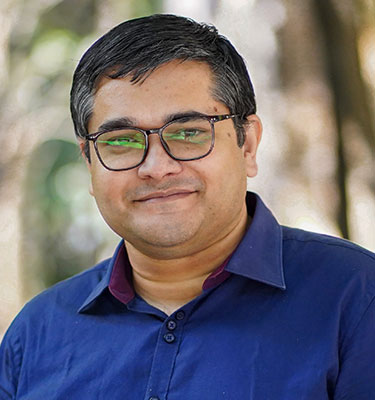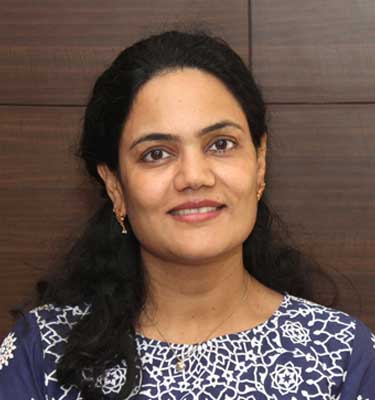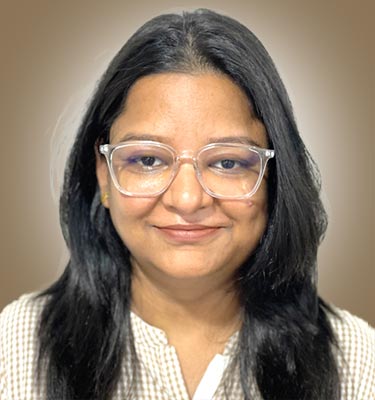The Doctoral program imparts the knowledge, skills and attitude to do world class research in the area of computing and mathematical sciences. Doctorate students are expected to publish their work in top tier International Journals and Conferences pertaining to their area of research. The program has a required amount of course work, essentially to prepare the candidate to carry out independent research, and to develop adequate breadth in the subject area. The main emphasis is on the research work leading to a thesis. The topic of the thesis is expected to be practical, inspired by or be sponsored by industry and the output should address a gap or have novel contribution to the existing literature. Typically, a student in consultation with his/her faculty advisor decides on their research within the first year of their registration while doing course work. Thereafter, the steps involved are (i) successfully complete course work (to build research background and breadth), (ii) thesis proposal defense, and (iii) thesis defense. Upon clearing the coursework requirements and the acceptance of their thesis proposal, the student works on the thesis, and its successful defense leads to the degree. In addition, The Scholars are expected to gain valuable teaching skills by tutoring and/or independently teaching a course.
The interdisciplinary nature of Data Science aligns with the liberal education ethos of FLAME University. For example, a PhD scholar could use machine learning tools in marketing or optimize a supply chain management network or build computational tools in finance or apply natural language processing in Psychology. Imagination and only sky are the only limit for any multi – inter and transdisciplinary research.
At FLAME University, the candidates will work with a supervisor / co-supervisor and participate in the initiation of the research projects and are further expected to carry out his or her projects independently. The Faculty offers excellent scientific infrastructure and state-of-the-art techniques together with a stimulating research environment. Our faculty research is currently focused on some of the following thematic areas:
- Artificial Intelligence: machine learning, knowledge representation and reasoning; function approximation; optimization; visualization
- Data Science: business intelligence; predictive analytics; text mining; E-commerce; natural language processing
- Image Processing: computer vision; augmented and virtual reality; remote sensing
- Mathematical Sciences: modeling and simulation; numerical methods and scientific computing; stochastic processes; partial differential equations; computational fluid dynamics; applications in computational biology, geophysics, finance, economics, cryptography, arithmetic algebraic geometry, number theory, algebraic complexity theory
- Cybernetics and Cyber Physical Systems: theory and applications to complex socio-technical systems e.g. smart buildings, smart and sustainable cities, digital governance
- Computer Science Education: Pedagogies for enhancing learning in CS topics; development and evaluation of tools to support CS education; artificial intelligence in education; learning analytics
Scholars are expected to Independently design / perform experiments, trouble-shooting, record results of experiments / interpret the experimental results and present the experimental results in the form of reports. Scholars will, along with faculty advisor(s), outside experts and industry, work towards creating an ecosystem known for the quality of its output. PhD scholars will work, through internships and joint projects, on real-world projects in close association with outside organizations and apply relevant and innovative computational methodologies to address real world problems. This will create a virtuous cycle where academic research will enable effective data driven decision and governance processes and in return real-world issues will stimulate the invention of new methodologies.
Prospective candidates may email the Faculty Doctoral Coordinator Dr. Prajish Prasad <
PhD guides and Research Interests
Prof. Kaushik Gopalan
Ph.D. - Electrical Engineering (Satellite Remote Sensing) | University of Central Florida, USA
Remote Sensing, Image Processing, Data Science, Machine Learning
Prof. Swapnajit Chakraborti
FPM - Information Systems | Indian Institute of Management - Indore
Predictive Analytics, Text Mining, Data Mining, E-commerce, Marketing Analytics, Machine Learning, Natural Language Processing
Prof. Chiranjoy Chattopadhyay
Ph.D. - Computer Science | Indian Institute of Technology Madras
Image Processing, Computer Vision, Augmented And Virtual Reality, Applied Machine Learning, Computational Studies On Images, Computational Studies On Migration
Not accepting PhD applications in 2026
Prof. Renu Dhadwal
Ph.D. - Industrial Mathematics | Technical University of Kaiserslautern - Germany
Physics Informed Neural Networks, Machine Learning, Differential Equations, Numerical simulations of ODEs and PDEs, Polymer processes modelling
Prof. Balaji Kalluri
Ph.D. - Building Sciences | National University of Singapore, Singapore
Research Interests: Design-thinking and Innovation Management in Complex Socio-Technical Systems (e.g. Smart Building, Smart Cities, e-Governance)
Prof. Shiwani Singh
PhD - Engineering Mechanics | Jawaharlal Nehru Centre for Advanced Scientific Research (JNCASR) - Bangalore.
Research Interests: Partial Differential Equations, Computational Fluid Dynamics, Numerical Methods, Polymer Physics, Kinetic Theory of Gases.







